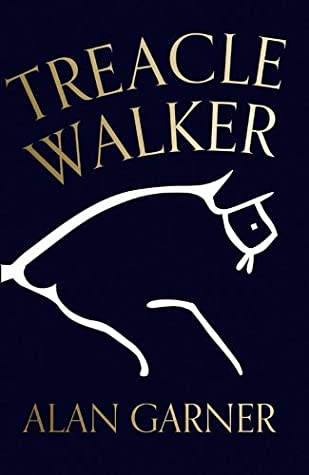I have frequently been surprised, these past couple of weeks, by the way in which even seasoned literary commentators still slip into the habit of referring to Alan Garner as a children’s writer. I am sure I’ve said this somewhere before, but I continue to think of my first encounter with Garner’s work – The Owl Service, which I first read when I was around twelve – as among my most significant primary encounters with adult themes in literature. I found the book utterly compelling – but if you had asked me then what it was about I would have found it hard to answer. There was simply a feeling I had, a palpable sense of having touched something mysterious, timeless and possibly dangerous. I experienced the same feeling, albeit with a greater understanding of what was going on, both in me and in the book, when I belatedly caught up with Red Shift, some years ago.

As regards the Booker commentators, what on Earth is wrong with saying that Alan Garner is a writer who often centres young protagonists?
Which is exactly what he does in his 2021 novel, Treacle Walker, recently shortlisted for the Booker Prize, a fact that has made me feel more personally excited about the award than I have done since Anna Burns won it for Milkman back in 2018. The Booker has become generally much more innovative, inclusive and interesting in recent years, and I follow the annual discussion surrounding it with great enjoyment. Garner’s shortlisting though speaks to me personally. It counts, for me personally,. This is simply a feeling I have.
Treacle Walker tells the story of a boy, Joseph Coppock. Joe has recently been ill, and seems to spend a lot of time alone. Are his parents at work? Who looks after the house? We are never told. We live, for the duration of this short novel, entirely inside the world and mind of Joe as he encounters a mysterious rag-and-bone man, Treacle Walker, and falls into a daunting adventure that will alter his universe.
Treacle Walker speaks to Joe in riddles, an affectation he clearly finds simultaneously annoying and compelling. He is eager to learn the secrets the old man wants to impart to him, at the same time impatient, as any boy might be, to set his own stamp on the world, to interpret its signs and wonders in his own language. Most of the dialogue in Treacle Walker is conducted in the dialect of Garner’s native Cheshire, and one senses keenly Garner’s desire not to confuse or obfuscate but to set down, to save this unique language from annihilation in the twenty-first-century rush to refute the past. There is also a fierce feeling of privacy being accorded, the boy and the man who were always meant to come together sharing knowledge neither could fully fathom, until now.
It is notable that in the moments of highest tension and drama, the two cease with their mutual ragging and speak in terse, plain English. In these exchanges, it is almost as if the two are of a similar age and level of understanding.
As with all of Garner’s work, the action takes place against a vividly described, living landscape. One might almost say that Garner’s writing becomes the landscape, revealing it in all its aspects: peace, seclusion, discomfort, joy, alienation and terror:
But night was in the room, a sheet of darkness, flapping from wall to wall. It changed shape, swirling, flowing. It dropped to the ground and ruckled over the floor bricks; then up to the joints and beams of the ceiling; hung, fell, humped. It shrieked, reared against the chimney opening, but did not enter. It surged through the house by cracks and gaps in the timbers, out under the eaves. There was a whispering, silence, and on the floor the snow melted to tears.
This passage speaks to me particularly, both in its heady choice of words and in the symbols they carry. There have already been suggested many possible and plausible explanations of Treacle Walker’s meaning. For me, it is a book about the rising tide of chaos that accompanies change, the corresponding forces of growth and new imaginings that bring about progress. People have spoken of this novel as Garner’s last hurrah, a gathering together of his familiar themes, a farewell coda. It may be all of these things. Yet it is equally a work of bold experiment and dynamism, a book that makes use of ancient fable to speak to us in our own time with uncanny acuity.
Treacle Walker is tired, and Joe is ready and waiting to claim his future. As the two change places, or become one another, they mirror the unquiet yet seamless passing of one season to another.